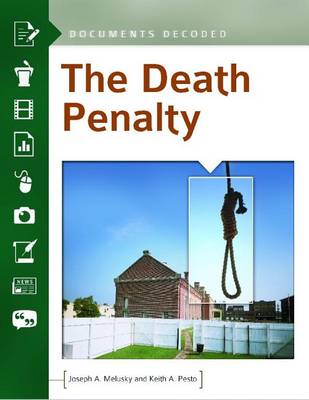Documents Decoded
1 total work
When is the death penalty considered "cruel and unusual punishment" or "constitutionally permissible"? This book exposes readers directly to landmark opinions of the U.S. Supreme Court that strive to answer difficult questions regarding capital punishment.
This book provides far more than an effective overview of the history, current status, and future of capital punishment in America; it supplies excerpts of the words of the justices themselves to make these judicial opinions readily accessible and understandable to general audiences. As a result, readers can see what the justices had to say for themselves regarding more than 30 important cases involving the death penalty-without relying on any intermediary interpretations of their statements. After a brief historical summary of the debate over capital punishment and the arguments favoring and opposing capital punishment, the book "decodes" how the justices have interpreted and applied constitutional provisions to historical and contemporary controversies. Each case includes brief narrative commentaries inserted by the authors to provide context for the justices' words. Additionally, the excerpted judicial opinions are presented as primary source documents for the reader's inspection and reflection.
- Presents the opinions of the Supreme Court in significant capital punishment or cruel and unusual punishment cases through the carefully excerpted words of the justices themselves
- Organizes information chronologically to facilitate students tracing the evolution of capital punishment in the United States
- Uses documents and insightful commentary to clarify and explain the arguments for and against capital punishment, providing unbiased information that allows readers to fairly consider both sides of the debate
- Recognizes the trends in the Supreme Court's decisions involving the death penalty and cruel and unusual punishment
- Ties court opinions to developments in law, technology, and society, such as the advent of DNA evidence
- Provides an ideal resource for undergraduate students studying constitutional law, civil rights/liberties, criminal justice, American government, and American history; as well as high school students in relevant advanced placement courses
